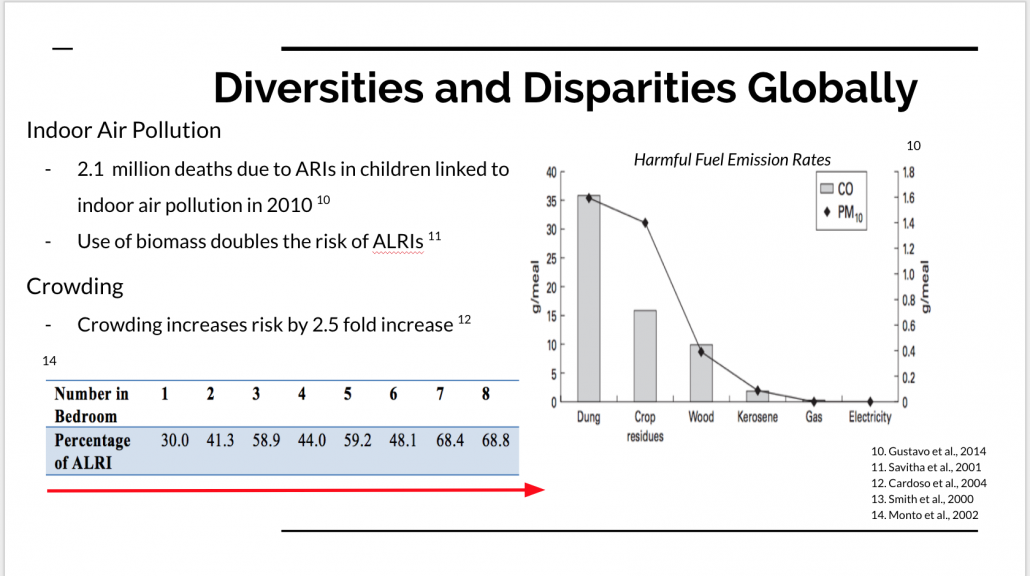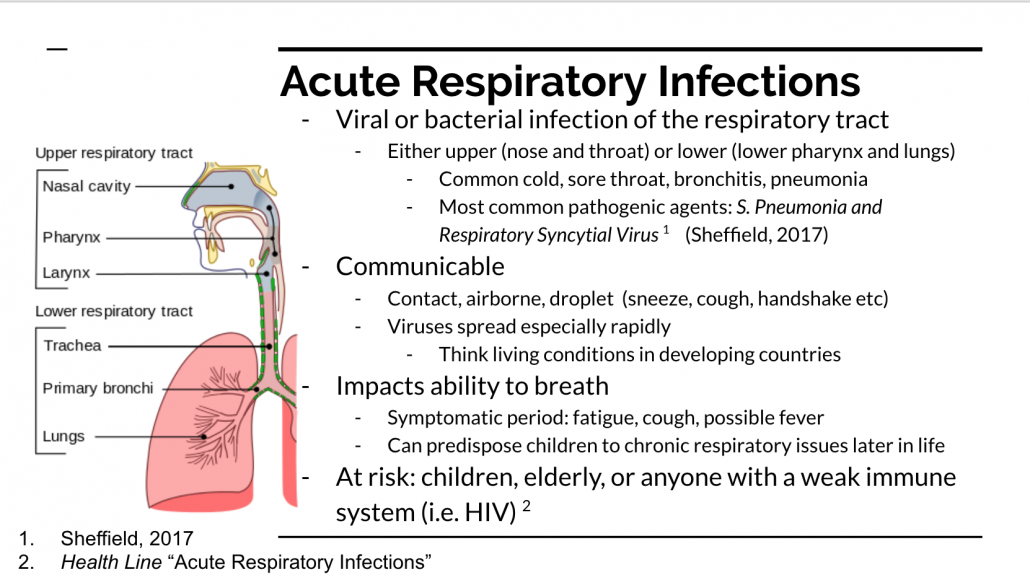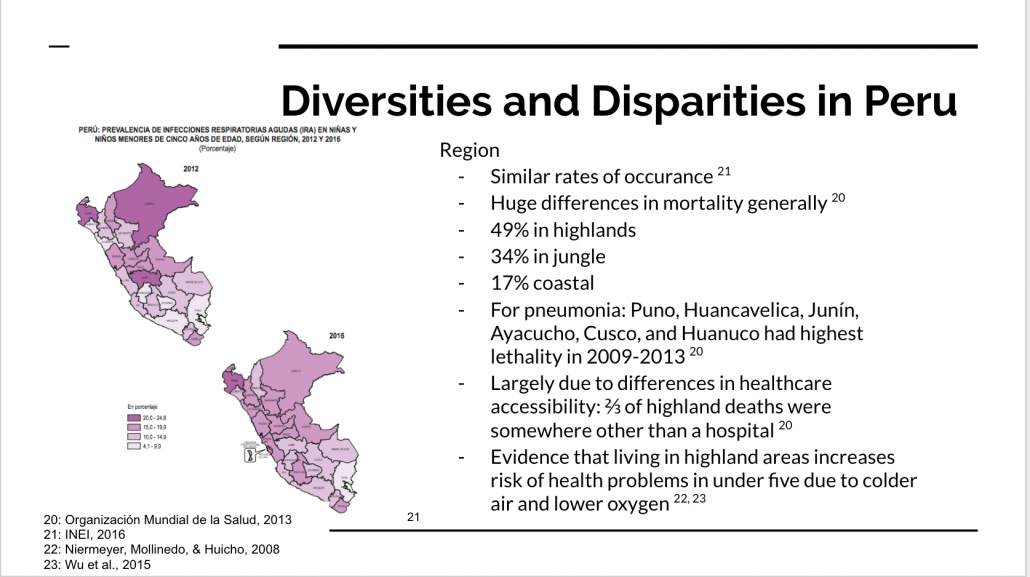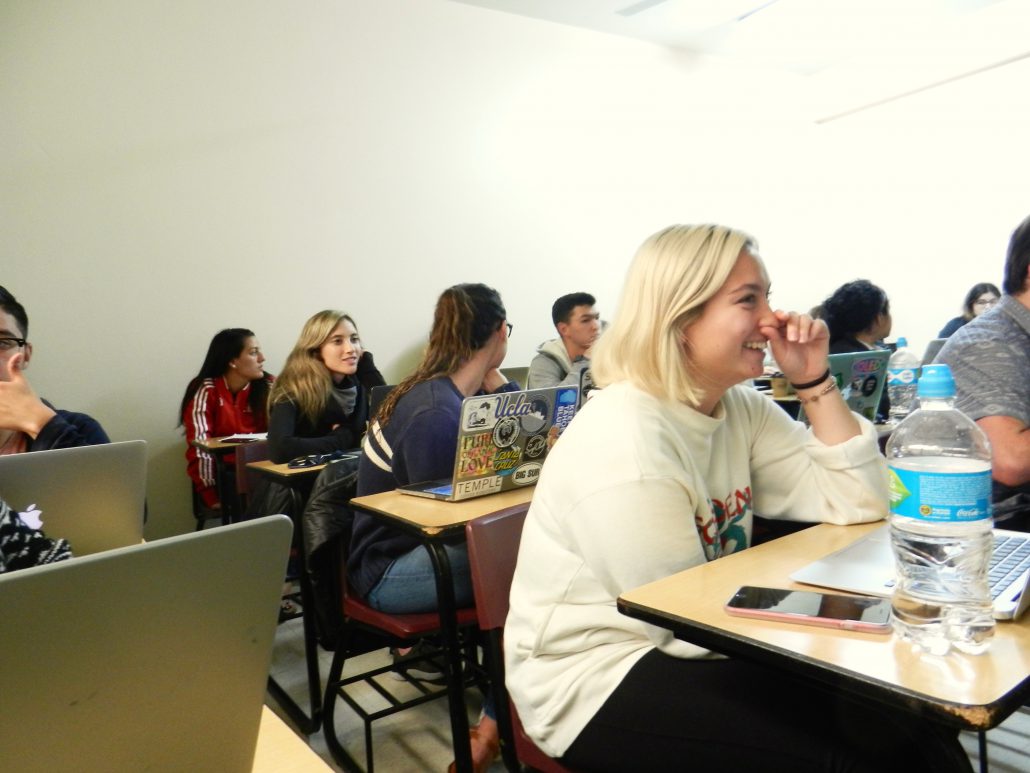BY MIKA NAGAMOTO
I must admit, I am usually not a very big fan of group projects. It somehow always seems as though the work is unevenly distributed or our group decides on a topic that I have trouble finding interesting. However, the group project that I completed for my course abroad was far different than any I have done in past classes.
Our assignment was to choose a public health topic that we found important. We were then instructed to investigate this health issue on a global scale and within Peru. The purpose of this project was to connect research with what we saw firsthand during our travels throughout Peru. After 4 weeks of visiting health centers, research centers, and NGOs, I was brimming with excitement to learn more about the health issues we saw throughout Peru.
For our project, my group decided on researching acute respiratory infections. I never thought that I would be so eager to research the burden of disease for the common cold but seeing the effects of pollution and limited access to healthcare in Peru gave me a strong fascination about this seemingly mundane issue. The more we researched acute respiratory infections, the more I learned about how the environmental factors in Peru play into this health issue. For example, when we visited Iquitos, I noticed that the main form of cooking was with wood-burning stoves. I discovered through research that in just one year, 2.1 million deaths due to acute respiratory infections in children were associated with using a wood-burning stove. I began to see how the facts and numbers came to life in the people and issues surrounding us. I now had my own observations and experiences to reference and inspire my research.



This class was specifically designed to acknowledge the ways in which diversities and disparities between populations can have unequal impacts on which populations experience health issues. An example of a diversity and disparity associated with negative health impacts can be seen through the effects of wood-burning stoves. For the local people in Iquitos, using a wood-burning stove is the cheapest option and has been the traditional form of cooking for generations. However, those who can only afford a wood-burning stove are unequally affected by acute respiratory infections. Furthermore, women and children are also the populations that are the most exposed to wood burning stoves in Iquitos. So even more specifically, women and children in families that can only afford wood-burning stoves experience the highest rates of acute respiratory infections. Suddenly, the term “acute respiratory infections” was no longer simply a scientific-sounding phrase but a term for an important health issue that I now understood the meaning and impact of. I thought of the women and children we met and how there was no simple solution for protecting them against acute respiratory diseases. I found that this project gave me the opportunity to make connections and tie together everything I had learned in the classroom with my experiences throughout Peru.
Global health initiatives are designed to address the disparities that unequally effect vulnerable populations. Having these examples from my time abroad has given me a new respect for the field and an understanding of why it is so important to work on health issues such as acute respiratory infections.
This group project also gave me an opportunity to get to know the students in my class and see their strengths and creative problem-solving skills. We all spent many hours researching together in our favorite study spots throughout Lima. We found countless cozy cafes with excellent coffee and delicious pastries. We stayed up helping each other find documents or translate Peruvian sources written in Spanish. It gave us all an opportunity to share our interests and perspectives from varying majors. The nursing major in our group explained to us all of the medical terms we needed to know while the sociology major in our class shared articles with us that explained the societal factors that effect disease. It was a truly collaborative project that brought together all of our strengths and varying fields of study.

Mika Nagamoto studied abroad in Lima and Iquitos, Peru, in summer 2018: https://ieo.ucla.edu/travelstudy/GlobalHealth-Lima/



